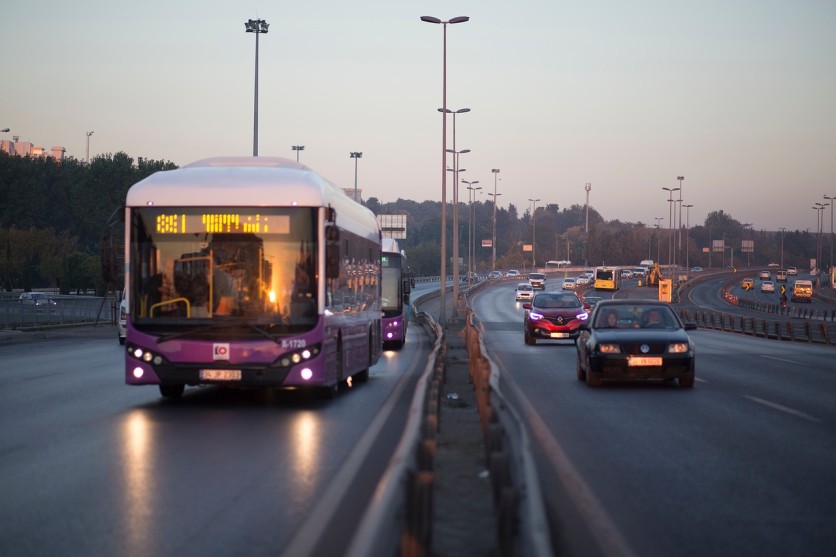
McKinsey & Company and other mobility tech market analysts have been crowing about the four ACES trends - an acronym that stands for Autonomous driving, Connected cars, Electrified vehicles, and Smart mobility. According to one recent McKinsey report, $220 billion has been invested in more than a thousand such companies since 2010, with $120 billion of that coming in just the past three years.
Despite the hype, however, investment in the transportation technology sector has been anything but a sure bet. Even the most well-known of these companies are struggling to show long-term value. Uber, for example, reported an operating loss of $3 billion in 2018. The year before, they'd lost over $4 billion - and the pile of lawsuits and California legislation are not helping. The leading EV manufacturer, Tesla, has seen back-to-back profitable quarters just once in its 15-year history. In the quarter ending March 31, 2019, Tesla saw one of its worst performances, losing nearly $700 million.
Personal mobility startups are struggling as well. Electric scooter services like Bird and Lime continually fight public backlash as cities complain about scooter "litter" in public spaces, vigilante businesses regularly impound thousands of units (adding to already steep operational losses), and local governments seek ways to curb company operations.
And yet, money continues to flow into these solutions with little hope of successful IPOs or immediate returns. At the same time, a huge opportunity in the transportation market goes largely overlooked. Right now, innovative tech companies are successfully improving regional travel and making very real money doing it.
To some, the mention of bus travel brings to mind paper tickets shoved through scratched plexiglass booth windows, loud and aging diesel buses, and long meandering highway trips. The latest generation of transportation technology companies are putting all of those perceptions to bed.
These companies are revolutionizing the very notion of what it means to travel by bus. Taking a page from the sharing economy, OurBus, for example, owns no vehicles itself. Instead, its platform handles all ticketing, route planning, alerts, and customer service. The rides themselves are contracted out to independent coach owner/operators - themselves, insured and successful small businesses.
These bus companies work directly with OurBus, which maintains direct relationships with the owners. As a result, only the most modern coaches are used on the routes, ensuring clean, quiet, and amenity-filled rides between destinations.
What savvy tech investors recognize is that this model offers the best of all possible worlds. It operates using a technology platform that is already tested and proven - unlike the AI technology required for autonomous driving, which is still very much in development. It utilizes a network of service providers that consists entirely of reliable, licensed small businesses - unlike Uber's problematic freelancer-dependent model. And it offers a mode of transportation that is open and accessible to riders from all walks of life - unlike scooters and e-bikes that favor the young, exclude the handicapped, and are priced largely for the recreation of the cash-flush consumer.
The market is already showing signs of interest. In July, FlixMobility, owners of FlixBus, extended their Series F at over a $2 billion valuation after raising more than $500 million. Although FlixBus is relatively new to the US and does not yet run many routes in the Northeast, (the country's most competitive bus market) investors are keen on their European track record and ambitions to expand in South America.
OurBus, for its part, has been expanding successfully westward. In the spring of 2019, the company replaced Amtrak's defunct Hoosier Line with a faster bus run, offering an immediate and compelling option for riders between Indianapolis and Chicago who would otherwise have been stranded. The success in Indiana is an example of everything that investors love to see: a flexible, technology-driven, consumer-friendly solution seamlessly disrupting an antiquated, infrastructure-heavy system that collapsed under the weight of its own costs and rigidity.
Companies like OurBus and FlixBus, along with startups like Skedaddle, Rally Bus, and Landline, are changing the way we think of bus travel and paving new avenues for investors. With some of the biggest names in mobility tech punting profitability further and further down the road, it's looking like bus-focused tech is about to hit the fast lane.
ⓒ 2025 TECHTIMES.com All rights reserved. Do not reproduce without permission.




